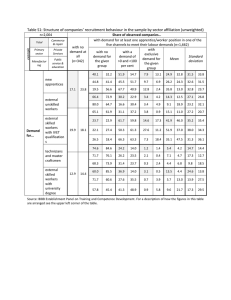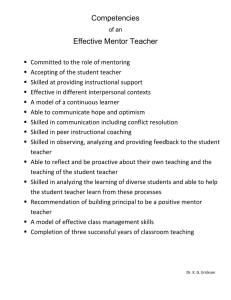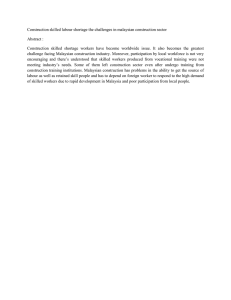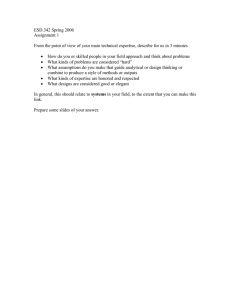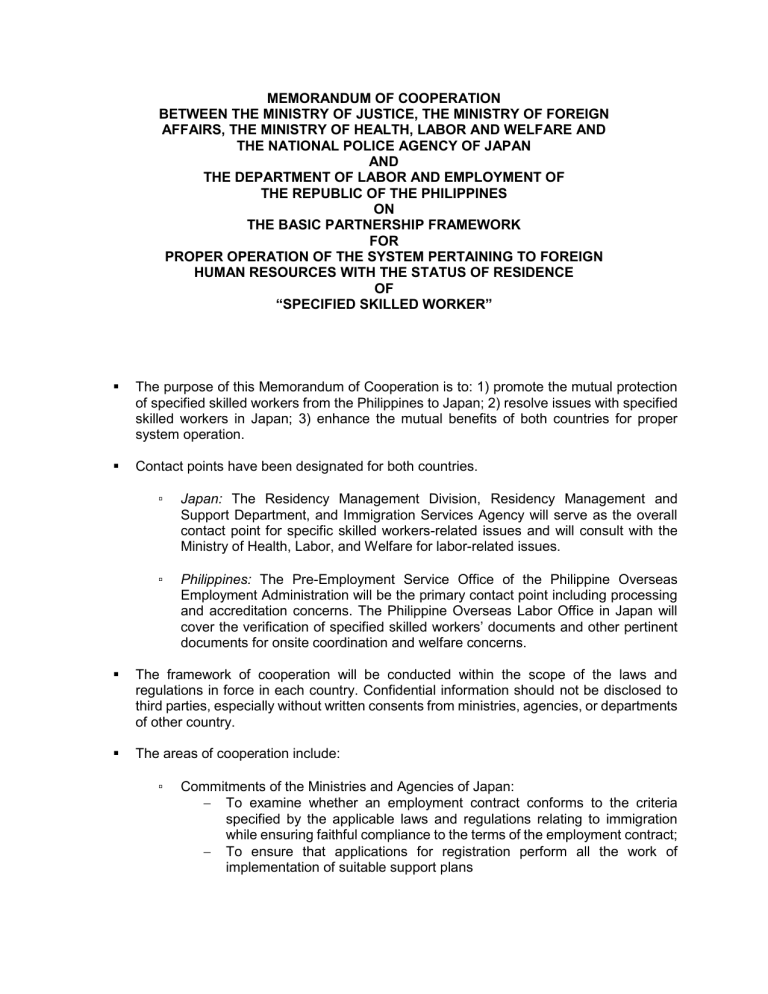
MEMORANDUM OF COOPERATION BETWEEN THE MINISTRY OF JUSTICE, THE MINISTRY OF FOREIGN AFFAIRS, THE MINISTRY OF HEALTH, LABOR AND WELFARE AND THE NATIONAL POLICE AGENCY OF JAPAN AND THE DEPARTMENT OF LABOR AND EMPLOYMENT OF THE REPUBLIC OF THE PHILIPPINES ON THE BASIC PARTNERSHIP FRAMEWORK FOR PROPER OPERATION OF THE SYSTEM PERTAINING TO FOREIGN HUMAN RESOURCES WITH THE STATUS OF RESIDENCE OF “SPECIFIED SKILLED WORKER” The purpose of this Memorandum of Cooperation is to: 1) promote the mutual protection of specified skilled workers from the Philippines to Japan; 2) resolve issues with specified skilled workers in Japan; 3) enhance the mutual benefits of both countries for proper system operation. Contact points have been designated for both countries. ▫ Japan: The Residency Management Division, Residency Management and Support Department, and Immigration Services Agency will serve as the overall contact point for specific skilled workers-related issues and will consult with the Ministry of Health, Labor, and Welfare for labor-related issues. ▫ Philippines: The Pre-Employment Service Office of the Philippine Overseas Employment Administration will be the primary contact point including processing and accreditation concerns. The Philippine Overseas Labor Office in Japan will cover the verification of specified skilled workers’ documents and other pertinent documents for onsite coordination and welfare concerns. The framework of cooperation will be conducted within the scope of the laws and regulations in force in each country. Confidential information should not be disclosed to third parties, especially without written consents from ministries, agencies, or departments of other country. The areas of cooperation include: ▫ Commitments of the Ministries and Agencies of Japan: To examine whether an employment contract conforms to the criteria specified by the applicable laws and regulations relating to immigration while ensuring faithful compliance to the terms of the employment contract; To ensure that applications for registration perform all the work of implementation of suitable support plans To implement the duties pertaining to registration and to deny if the organization falls under the grounds for registration denial To make the information on registered organizations such as their names publicly available in Japan To conduct the collection of reports and provide guidance and advice to accepting organizations when necessary to secure To secure wages, work hours, safety and health, and other labor conditions and ensure the improvement of work management To publicize and make the information available for Japan regarding the specified skilled workers sent to Japan To notify the Department of the Philippines of an improvement order and to share the list of registered supporting organizations to the Philippines. To provide necessary information when receiving inquiries regarding the acceptance of specified skilled workers from the Philippines ▫ Commitments of the Department of the Philippines To examine whether a Sending Organization meets approving standards To makes the names and other information on approved Sending Organizations in the Philippines publicly available To perform investigations over the approved Sending Organization in question, to provide necessary guidance and supervision over the Sending Organizations, and to share the investigation results with the Ministries and Agencies of Japan To guide approved Sending Organizations in the Philippines in order to select and send specified skilled workers, to revoke approval when a Sending Organization no longer meets the approving standards, and to communicate the results to the Ministries and Agencies of Japan To make information publicly available in the Philippines when informed by the Ministries and Agencies of Japan and their improvement order To issue necessary guidelines to implement the Memorandum of Cooperation including Standard Employment Contract creation and worker selection and deployment of specified skilled workers To provide necessary information when the Department of the Philippines receives inquiries from the Ministries and Agencies of Japan ▫ Information Sharing The Ministries and Agencies, and the Department of Both Countries will promptly share necessary or useful information to ensure the proper sending and accepting of specified skilled workers while simultaneously resolving issues as they arise. This includes information on the acts of intermediary organizations in both countries under which the following acts of malicious intermediary organizations: Managing money or other properties of specified skilled workers or candidates of specified skilled workers Concluding any contracts that impose monetary penalties or the undue transfer of money or other properties for contract violation Human rights infringements against specified skilled workers and candidates such as assaults, intimidation, and freedom restrictions Using or providing forged, altered, or false documents, pictures, or drawings with the intention of obtaining permissions, visas, or other certificates fraudulently related to the immigration control or visa procedures of Japan Collecting fees or other expenses from specified skilled workers and candidates without the indicating the calculation basis of the expense and making them understand the amount and breakdown of the expense. ▫ Joint Committee A joint committee will be established and should meet periodically or from time-to-time upon the request of either country at a venue to be mutually chosen by the countries. The main subjects of the meetings are as follows: Issues on policy changes and implementation of both countries concerning the system Issues on the appropriateness of intermediary organizations for specified skilled workers Issues on corrective measures for various examinations pertaining to the sending and accepting of specified skilled workers Issues on the implementation of skills exams and tests to measure Japanese language proficiency of specified skilled workers. Issues on residence management of specified skilled workers in Japan Issues on proper system operation and other related systems pertaining to immigration or labor of both countries ▫ Administration of skill exams and tests to measure Japanese language proficiency The “Relevant Ministries and Agencies of Japan will properly conduct skill exams and tests to measure Japanese language proficiency of specified skilled workers. The group of agencies and ministries are also requested to cooperate in the implementation of tests and related business pertaining to Japanese language education, or in other business related to the tests on Japanese language proficiency. ▫ Workers’ right protection The Ministries and Agencies of Japan and the Department of the Philippines will promote the welfare of specified skilled workers from the Philippines in Japan and protect their rights in accordance with the laws and regulations of each country. Based on the review of the system pertaining to specified workers to be implemented two years after its commencement, the framework of cooperation between the two countries under this Memorandum of Cooperation of Cooperation will be modified or supplemented as necessary with written consent of both countries. The Memorandum of Cooperation will commence of the 1st day of April, 2019. It was signed on the 19th day of March, 2019 at Tokyo, Japan by the following: ▫ Ministry of Justice ▫ Ministry of Foreign Affairs of Japan ▫ Ministry of Health, Labor, and Welfare of Japan ▫ National Police Agency of Japan ▫ Department of Labor and Employment of the Republic of the Philippines DEPARTMENT ORDER NO. 201 SERIES OF 2019 TO ALL CONCERNED SUBJECT: GUIDELINES ON THE DEPLOYMENT OF WORKERS TO JAPAN UNNDER THE STATUS OF RESIDENCE “SPECIFIED SKILLED WORKER” DATE: 22 MARCH 2019 I. Coverage: These guidelines shall cover the identified occupational categories as of 25 December 2018 provided by the Basic Policy on Operation of the System of the Status of Residence of “Specified Skilled Worker”. II. Definition of Terms: Accepting organization; Accreditation; Overseas Employment Certificate; POLO; Recruitment Agreement; Registered Support Organization; Sending Organization; Specified Skilled Worker (i & ii); and Support Plan are defined. III. Sending Organizations: The POEA will provide the names and other information on sending organizations to the Ministries and Agencies of Japan. IV. Accreditation of Accepting Organizations at POEA: The requirements for accreditation of principal / employer and dual / multiple accreditation under the Revised POEA Rules and Regulations Governing the Recruitment and Employment of Land-based Overseas Filipino Workers of 2016 shall apply on the accreditation of accepting organizations. V. Qualifications for Specified Skilled Worker: The following are the qualifications of a Specified Skilled Worker (i): i. The applicant must be at least 18 years old. ii. The applicant must possess skills requiring considerable knowledge or experience through an examination or other evaluation method. iii. The applicant must possess the Japanese language proficiency necessary for living in Japan by conducting an examination or other evaluation method. iv. The applicant must possess a passport valid for at least six (6) months prior to the intended date of departure. v. Those who have successfully completed the “Technical Intern Training (ii) are exempted from the requirements under ii and iii above. The following are the qualifications for Specified Skilled Worker (ii): i. The applicant must be at least 18 years old. ii. The applicant must possess proficient skills necessary for work requiring considerable knowledge or experience through an examination or other evaluation method. iii. The applicant must possess a passport valid for at least six (6) months prior to the intended date of departure. VI. Issuance of Overseas Employment Certificate to Specified Skilled Workers: The issuance of the overseas employment certificate shall be subjected to the online registration procedure of land-based workers under Memorandum Circular No. 7, Series of 2018 implementing the Land-based E-contract System (LBECS). Specified skilled workers who are directly hired by an accepting organization shall not exceed five (5) and shall be required to comply with the documentary requirements specified in Rule II, Section 125 of the Revised POEA Rules and Regulations and related issuances. Specified skilled workers who transferred from one accepting organization to another while in Japan shall present their new contract to the POLO for verification. Technical interns who are qualified under Section V, letter A and are employed by an accepting organization while in Japan shall present their new contract to the POLO for verification. Technical interns who are qualified under section V, letter A and have returned to the Philippines but are being reemployed by their implementing organizations. For other workers not covered by the preceding enumerations, the processing of OEC shall be governed by the pertinent provisions of the Revised POEA Rules and Regulations and other related issuances. VII. Fees and Charges No fee of any kid or form shall be collected (directly and indirectly) from the specified skilled worker for their selection and deployment to Japan. No deductions shall be made on the worker’s allowance / wages for any purpose except for host country prescribed allowable deductions such as tax. The fees and costs chargeable to the specified skilled worker, sending organization, and accepting organization shall be in accordance with the appropriate provisions under Rule V of the Revised POEA Rules and Regulations. MINISTRY OF JUSTICE (MOJ) EXPLANATION ON JAPAN SPECIFIED SKILLED WORKERS I. Image of the concerning organizations II. Outline of the statuses of residence Specified Skilled Worker (i): Status of residence for foreign nationals engaging in work requiring skills which need considerable knowledge or experience belonging to a field in an industry where it is necessary to secure human resources to cover a labor shortage. Specified Skilled Worker (ii): Status of residence for foreign workers engaging in work requiring expert skills belonging to the same field Points of Specified Skilled Worker (i): i. Period of stay: up to 5 years in total (extension for a period of 1 year, etc., in principle, based on the premise of renewal of the contract) ii. Skill level: skills that require a considerable degree of knowledge or experience iii. Accompaniment of family members: Basically, not permitted iv. Eligible for support by accepting organization or registered support organization Points of Specified Skilled Worker (ii): i. Period of stay: period of stay at the time of permission for extension (extension for a period of 1 to 3 years, etc. depending on the individual situation of residence based on the premise of renewal of the contract) ii. Skill level: expert skills iii. Accompaniment of family members: possible on fulfilling certain conditions (spouse, children) III. Outline of accepting organizations With regard to accepting organizations, have them conclude an appropriate employment contract which includes a provision on remuneration, etc., and require them to ensure that the contract is being properly executed. The accepting organization should conform to the standards for ensuring the proper implementation of the support plan. Criteria for the employment contract: i. The remuneration must be equivalent to or greater than that a Japanese national would receive for engaging in the same kind of work ii. There must be a measure in place to ensure the departure of foreign nationals whose contract term has expired iii. If a foreign national wishes to temporarily return home, such foreign national must be given vacation time, etc. Criteria relating to proper execution of the employment contract i. Compliance with labor-related laws and regulations and social insurancerelated laws and regulations ii. Workers engaged in similar work as the foreign national with “Specified Skilled Worker” must not have been made to involuntarily leave their job iii. The organization has not caused any missing persons (except where there are no causes attributable to it). iv. It has not committed an illegal act or significantly unjust act in relation to laws and regulations relating to immigration or labor within the past 5 years. v. It does not come under the grounds for disqualification (criminal record, organized crime connections, etc.) vi. There has been no intermediation by a pernicious agent such as the collecting of deposits etc. Criteria relating to the support system i. It has a track record of properly accepting mid to long-term residents or there are staff members there who have experience of engaging in giving advice on the day-to-day living of mid to long-term residents. ii. It has set up a system of information provision. iii. The person responsible for support does not come under the grounds for disqualification, etc. IV. Outline of Support Have the accepting organization prepare a support plan and implement assistance on the working life, day-to-day living and social life of foreign nationals with “Specified Skilled Worker (i)” based on the support plan. The accepting organization (should conform to the standards for ensuring proper implementation of the support plan but) will be deemed to have conformed to the standards if it entrusts the support to a registered support organization. Support Plan (Example of support contents) i. Provision of day-to-day living guidance before entering Japan (overview of residence activities, explanation that collecting deposits etc. is illegal) ii. Securing of accommodation iii. Implementation of orientation on day-to-day living during residence (administrative procedures, method of submitting various notifications, information on day-to-day living, medical care, crime prevention, etc.) iv. Support to acquire Japanese language proficiency for day-to-day living v. Responses to consultations and complaints (labor conditions, job changes, general living, medical care, etc.) vi. Job change support at the time of non-voluntary leaving of organization vii. Others V. Registered support organizations The accepting organizations (should conform to the standards for ensuring proper implementation of the support plan but) will be deemed to have conformed to the standards if it entrusts the support to a registered support organization Registration requirements i. It does not come under the grounds for denial of registration (disqualification grounds) ii. It is not a person which has been punished pursuant to the laws or regulations related to immigration or labor within the past 5 years, etc. iii. It has a track record of properly accepting mid to long-term residents or there are staff members there who have experience of engaging in giving advice on the day-to-day living of mid to long-term residents. iv. It has set up a system of information provision v. If it meets the requirements, it will be registered as a registered support organization. (The entities which are able to become registered support organizations are not restricted to specific industries) Registration procedures i. Application for registration ii. Submit necessary information such as the name, address, etc. of the representative and documents of proof iii. Registration by the Commissioner of the Agency for Immigration and Residency iv. Cancellation of registration v. Where support based on the support plan was not provided vi. Where registration was acquired through improper means, etc. VI. Notifications, guidelines, advice, and reports, etc. Provision on notification to the Commissioner of the Agency for Immigration and Residency by the accepting organizations and the registered support organizations. Provisions on guidance and advice to the accepting organizations or the registered support organizations by the Commissioner of the Agency for Immigration and Residency, and provisions on the collection of reports. Provisions on improvement orders issued to the accepting organizations by the Commissioner of the Agency for Immigration and Residency. Establishment of other related procedures and penalties, etc.
